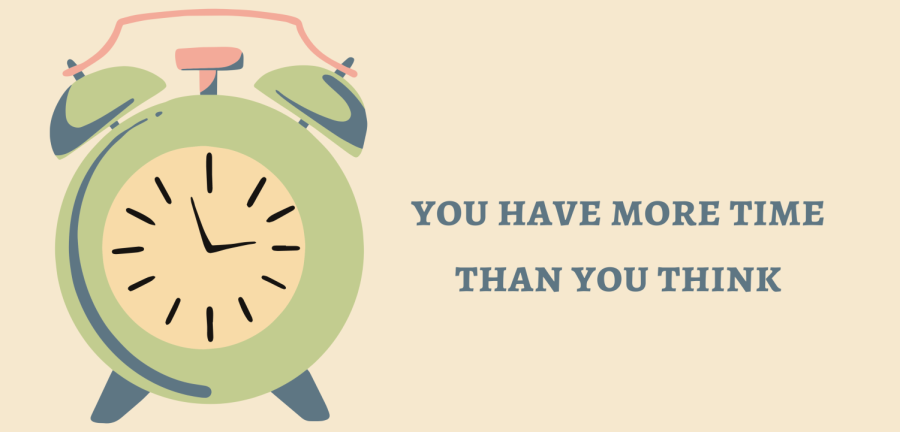You have more time than you think
As the year wraps up, it feels like time has flown by within the blink of an eye, but psychology suggests that our perception of time has sped up, and that we actually have more time than we realize.
May 18, 2022
Time is a strange thing. It’s deeply personal and somewhat subjective. Sure, the way we organize our calendar is based on the set-in-stone knowledge that the sun rises, but to each individual the passage of time is unique.
Humans tend to see time as a linear sequence of events, something that can be measured out. But in recent years, researchers have been noticing how our perception of time passing can depend on a variety of psychological and environmental factors. For instance, during the nationwide quarantine back in 2020, the interruption of our daily lives altered the way we perceived the passage of time. According to a publication by Frontiers in Psychology, humans rely on memory to keep track of passing time, but when our memories become monotonous and repetitive, our perception of time becomes distorted. There is also the factor of how negative emotions impact memories and how more negative emotions can lead to losing time.
Over the last decade or so, this change in our perception of the passage of time has been more noticeable, and further amplified by the pandemic. Prior to lockdowns, it was speculated that the rapid expansion of technology has had a significant impact. Although, most results seem to be in conflict with one another. There is the idea that technology has sped up our information processing capabilities, and time feels like it is passing at an accelerated pace. Dr. Aoife McLoughin, a lecturer at James Cook University, has found through comparative studies that our brains trick us into thinking more time has passed, along with aiding our minds in processing information more efficiently. While the long-term effects of this mental acceleration are still being researched, McLoughlin has emphasized that the potential side effects could be harmful; “While it might help us to work faster, it also makes us feel more pressured by time.”
People tend to have complicated relationships with the passage of time, and as McLoughlin suggests, feel constantly pressured by it. With this research in mind, it becomes more apparent how this psychological change in time perception affects young people. Young people tend to be more grounded in the present, while as we age, the passage of time keeps getting faster. There is immense pressure on young people to organize and prepare for their life before time runs out: as if there is a set time to achieve everything you want to achieve. Our brains have been rewired to always be rushing and attempting to do everything as quickly as possible, to the point where we see normal human pace as ¨too slow”. We aren’t computers; we don’t have to live life as if we are rushing against the clock. You have time, so take a deep breath.







